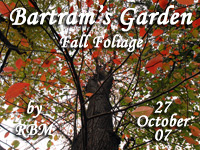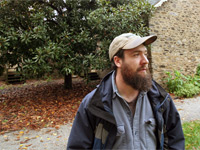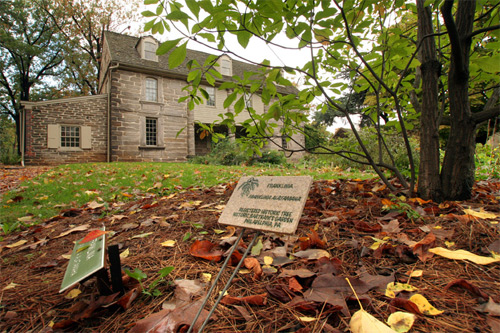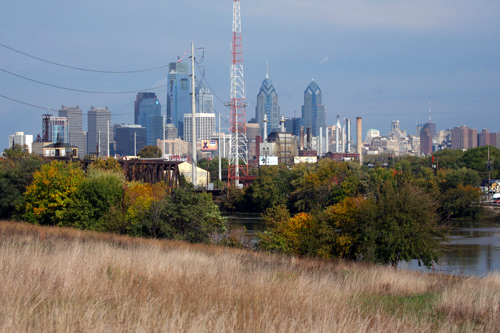|
 People always talk about the weather, because people always can talk about the weather. Conversations about politics and religion can end in frustration and fights. Conversations
about sports usually end in frustration (except in Boston). Conversations about sex lead to frustration and sex. But weather? Even your crazy Uncle Bob can talk about the weather. And as
climate change / global warming continue on such a pace that not only is green construction becoming commonplace but even freaking Chevrolet is making hybrid cars, people will
only be talking more about the weather.
People always talk about the weather, because people always can talk about the weather. Conversations about politics and religion can end in frustration and fights. Conversations
about sports usually end in frustration (except in Boston). Conversations about sex lead to frustration and sex. But weather? Even your crazy Uncle Bob can talk about the weather. And as
climate change / global warming continue on such a pace that not only is green construction becoming commonplace but even freaking Chevrolet is making hybrid cars, people will
only be talking more about the weather.
(I realize all war talk right now involves Iran -- it blows the mind that expanding this hopeless war is even being seriously considered -- but I'm calling it right now that within fifty
years there will be a war for Antarctica. Right now, the seventh continent is governed only by an international treaty establishing that it can ONLY be used for peaceful and scientific
missions, but let's see how an unstable world of over six billion people with half of it doing virtually nothing about greenhouse gases behaves for half a century.)
Anyway, weather. I've said it a thousand times: the biggest reason I love Pennsylvania and the northeastern United States is the weather. We not only have all four seasons; we have the
extremes of all four seasons, and the best of these is always fall. The first frost, the harvest moon, the apples and pumpkins, the fall colors, the big bowl of meaty chili and the
October ale. All those recent weeks of hot weather had me worried, but last week, fall officially arrived with a cool wet spell and an email invitation to a fall foliage tour at
Bartram's Garden, rain or shine.
 Well, it was pouring on Saturday morning and that delighted me to no end -- I would gladly make the trip to hold them to task, and the rain would keep the crowd small and manageable.
When I got there, the barnyard was soaked and still soaking, but under the overhang sat a cider press and a crate of apples. Don't mind if I do! As I was cranking away making the
freshest cider in the world, Bartram's head gardener Todd Greenberg popped out to survey the half dozen people joining him. "I love walking through the garden in the rain," he tells me
with smile that he means it.
Well, it was pouring on Saturday morning and that delighted me to no end -- I would gladly make the trip to hold them to task, and the rain would keep the crowd small and manageable.
When I got there, the barnyard was soaked and still soaking, but under the overhang sat a cider press and a crate of apples. Don't mind if I do! As I was cranking away making the
freshest cider in the world, Bartram's head gardener Todd Greenberg popped out to survey the half dozen people joining him. "I love walking through the garden in the rain," he tells me
with smile that he means it.
My first thought is "who wouldn't?" but then I realize this is his job. He's not just a professional gardener; he's one of the most important gardeners in America. His particular
position is one of a historic existence, a direct descendant of that of the Bartrams themselves. John Bartram was a Quaker and farmer by trade, but he became enthralled by plants and
plant life by buying a home on some land in Kingsessing (in modern day Southwest Philly) along the Schuylkill River. Through a correspondence with a London merchant named Peter Collinson
(who also had correspondence with Ben Franklin about electricity), he gained knowledge through books and research he traded for seeds and leaves. His son William Bartram would follow and
become an accomplished botanist with his father, as well as an early American pioneer of ornithology (birding).
John and William Bartram traveled extensively along the eastern seaboard, studying, collecting and subsequently naming, introducing and cultivating hundreds of plants. The most famous of
these is the Franklinia, named for (wait for it . . .) Ben Franklin.

Franklin and the elder Bartram were dear friends; Bartram's idea for a "society or academy of the most ingenious and curious men" evolved, via Franklin, into the American Philosophical
Society. Bartram's esteemed garden was the scene of some of its meetings, and parties hosted for the likes of Franklin, Jefferson and Washington.
To think of Bartram's Garden in modern terms is to wonder how it survived, truthfully. Like the Delaware, most of the lower Schuylkill River (below the Fairmount dam) was developed
industrially or via some other unnatural manner. Andrew Eastwick, for whom the nearby Southwest Philly neighborhood is named, had the foresight and sincerity to purchase the Garden in
1850 for the purpose of preserving it in its entirety. He even built his own home on a hill away from the original home so as to not disturb Bartram's vision. Eastwick's home was
demolished, but a picnic pavilion named for him eventually replaced it.
Bartram's Garden has operated under the auspices of Fairmount Park since 1891, when the City purchased the Garden at the behest of Councilman Thomas Meehan, who was once Eastwick's
gardener. Sunoco operates its massive refinery just downstream, PGW's operation is directly across the river, and DuPont is just on the other side of Grays Ferry Bridge. But here amidst
the industry and post-industry lies 45 acres of trees, flowers, plants, fruits and nature, same as it's been for over 250 years.
Don't be mistaken, though: Bartram's Garden isn't stuck in the 18th century. A wooden boardwalk leads you from the Garden into the woods and along the river, and the trail continues past
the planks past a baseball field and wetlands rebuilt in 1997 (which was flooded by the Schuylkill on Saturday morning), and a boat dock completed last year at the bottom of the Garden's
meadow. That meadow is itself land reclaimed from industry: in the late 1980s, the Garden purchased the concrete factory next door and began the process of filling it in -- with land
excavated from what would become Liberty Place, and from sewer sludge. Todd Greenberg is right when he says that "everyone in Philadelphia had a hand in creating this meadow."
It's a proper place to bring this all together and get to the photos. Bartram's Garden's meadow has one of the most majestic and complete views of the Philly Skyline: a wide view, the
Schuylkill River, industrial plants and relics, railroad, and a meadow that was born of that same skyline.

There are 55 photos in this set. Grab yourself a glass of cider and enjoy this photo essay by clicking
HERE.
For more on Bartram's Garden and John and William Bartram, please see the following:
• Bartram's Garden
• USHistory.org
• American Heritage
• Wiki: John Bartram
• Wiki: William Bartram
|
